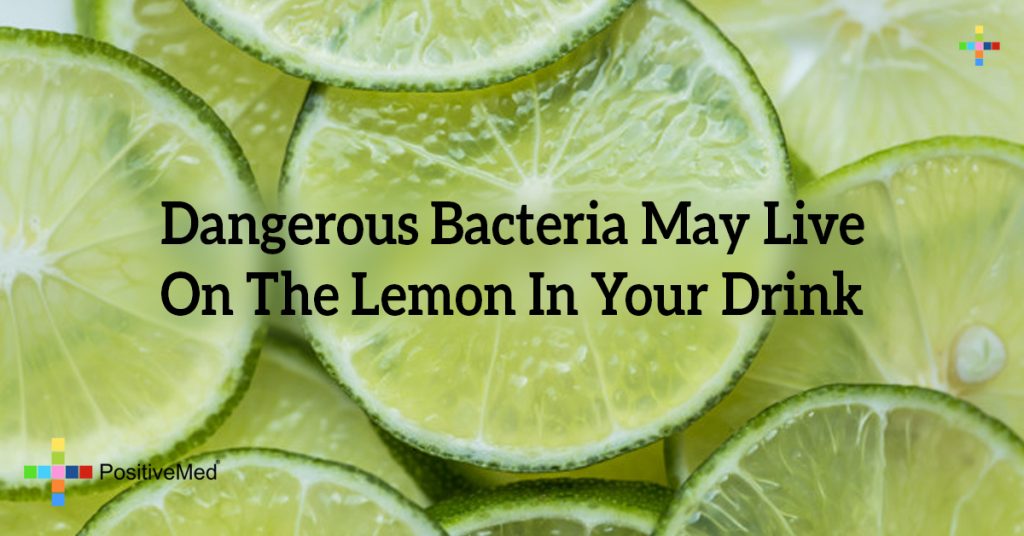
Dangerous Bacteria May Live On The Lemon In Your Drink
A popular internet rumor is that a study found dangerous microbial growth on 70% of lemon slices served in restaurants. The truth of the matter is, most (if not all) of the articles and emails/posts that refer to this phenomenon are based on a single flawed study published in the Journal of Environmental Health in December 2007. This study was co-authored by Anne LaGrange Loving, an assistant professor of science at Passaic County Community College.
Seventy-six lemon wedges served with water or soda were sampled from twenty-one different restaurants and analyzed for microbial growth. They found that 69.7% of the wedges that were sampled produced some form of microbial growth from the rind and/or flesh, encompassing a total of twenty-five different microorganisms, including bacteria and yeasts. The study noted that the microbes found in the investigation have the potential to cause infectious diseases at various body sites, but does not demonstrate that restaurant patrons are at risk for contracting serious illnesses due to food workers’ not observing sanitary standards.
To begin with, they didn’t determine the origins of the contaminates. The study also did not determine the likelihood of customers’ contracting infectious diseases from restaurant-served lemon wedges, nor did it cite any examples of such an occurrence. What the study uncovered, in all actuality, was that this is a potential problem that requires further investigation.

After all, these lemon wedges may have been infected by the water or soda they were served with, the glass, the knife they were cut with, the cutting board they were sliced on, or the hands that picked them, cleaned them, or sliced them. They could have been affected by airborne irritants or the hands of the scientists conducting the study. There may have been some environmental factors in the lab or the restaurant or the bag they were carried in.
The study, itself states at one point
It is not possible to definitively identify the origins of the microorganisms. While the Enterobacteriaceae and nonfermentative Gramnegative bacilli could have come from the fingertips of a restaurant employee via human fecal or raw-meat or poultry contamination, they might have contaminated the lemons before they even arrived at the restaurant. The Gram-positive cocci and Corynebacterium isolates may have been introduced onto the lemons from the skin or oral flora of anyone who handled them, before or after they arrived in the restaurant. The Bacillus species are ubiquitous and could have had numerous sources, including airborne spores landing on the fruit or on the knife used to cut the lemon.
The likelihood (of the microbes’ causing infectious diseases) was not determined in this study. An extensive search of the literature yielded no reported outbreaks or illnesses attributed to lemon slices in beverages. Establishment of an infection would depend upon the number of microbes introduced; this investigation did not include a quantitative determination of the numbers of microorganisms on the lemons. Other factors that would contribute to the establishment of an infection would include whether the organisms were resistant to multiple antibiotics, the general health and age of the individual, the status of the immune system, and the integrity of the mucous membranes of the lips and mouth.
The point of this is, the lemon in your drink at a bar or restaurant is just as safe (if not safer due to the high acidity) as anything else you consume, either at home or out on the town. It still has vitamin C and is still a refreshing addition. Take a deep breath and focus on what’s really important – like what, exactly, is the difference between hummus and baba ghanoush?
Microbial Flora … , Anne LaGrange Loving Dangerous Bacteria… , Refinery 29 Bacteria Lemon Slices, Hoax Slayer





